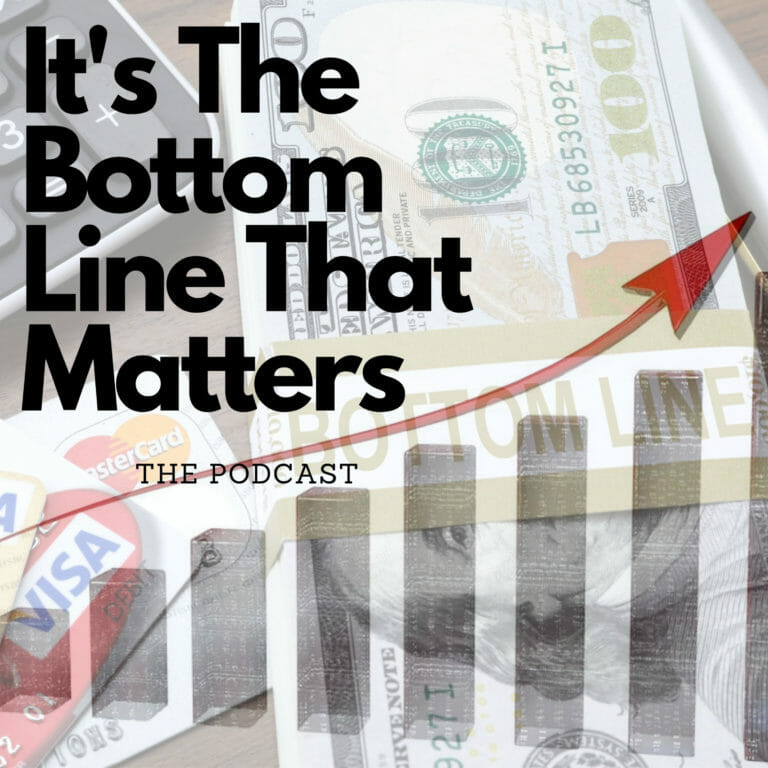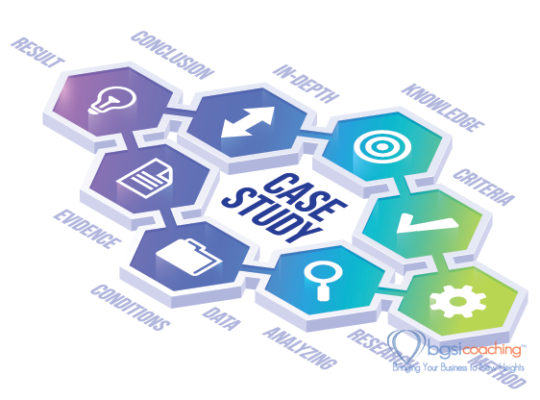On this episode of It’s The Bottom Line that Matters, we dive into the importance of understanding technology and its impact on increasing bottom lines. Our special guest, Dante White, recognized as one of the top leaders in the tech industry, joins us to discuss how his company, Oppuous, is revolutionizing access to technology solutions.
Throughout the episode, we explore key messages such as the need for individuals to understand their goals and make informed decisions about investing in technology. Dante emphasizes the importance of considering opportunity costs and seeking guidance from trustworthy sources when evaluating technology investments. He highlights the tendency of entrepreneurs to be attracted to new tools and stresses the importance of evaluating if they truly benefit business progress.
We also discuss the significance of keeping track of tech stacks to avoid duplicate purchases and ensure efficiency. Dante introduces opus.com as a resource for further discussions and encourages listeners to connect with him or someone they trust. We address concerns about AI and its potential to provide inaccurate information, but also highlight the importance of feeding AI with proper knowledge through white papers and documentation.
Dante compares AI to a paralegal, mentioning its ability to do heavy legwork but also the need for double-checking its accuracy. We acknowledge that AI is not a replacement for humans but can help businesses by reducing research time and providing prompt and accurate information.
Throughout the episode, we share examples and insights into how technology can enhance bottom lines. Dante shares his vision for Oppuous, which aims to simplify access to technology solutions for business owners. We discuss the importance of leveraging existing tools and avoiding unnecessary purchases, as well as the cost savings and efficiencies that can result from using AI prospecting tools.
Additionally, we delve into topics such as automation, cybersecurity, and the impact of technology on customer service. We emphasize the value of understanding why a particular tool is needed and seeking expert advice to avoid costly mistakes during implementation.
Towards the end of the episode, we offer guidance on how to approach new technologies without feeling overwhelmed or overloaded. We share the support services provided by Oppuous, including tiered support for Microsoft and Google products and a simple portal for submitting support tickets.
Overall, this episode provides a comprehensive exploration of how technology can increase bottom lines and offers practical advice for business owners to navigate the ever-changing tech landscape. Join us as we dive into the world of technology and the bottom line that truly matters.

The “It’s the Bottom Line that Matters” podcast is all about providing entrepreneurs and seasoned business executives with actionable nuggets that can be used to immediately help grow their business. Ideas ranging from marketing solutions to strategy, finance, and more.
Jennifer Glass, Daniel McCraine, and Patricia Reszetylo share their combined years in business, knowledge, and skills to help small businesses thrive because it’s the bottom line that matters!
On this episode of It's The Bottom Line that Matters, we dive into the importance of understanding technology and its impact on increasing bottom lines. Our special guest, Dante White, recognized as one of the top leaders in the tech industry, joins us to discuss how his company, Oppuous, is revolutionizing access to technology solutions.
Throughout the episode, we explore key messages such as the need for individuals to understand their goals and make informed decisions about investing in technology. Dante emphasizes the importance of considering opportunity costs and seeking guidance from trustworthy sources when evaluating technology investments. He highlights the tendency of entrepreneurs to be attracted to new tools and stresses the importance of evaluating if they truly benefit business progress.
We also discuss the significance of keeping track of tech stacks to avoid duplicate purchases and ensure efficiency. Dante introduces opus.com as a resource for further discussions and encourages listeners to connect with him or someone they trust. We address concerns about AI and its potential to provide inaccurate information, but also highlight the importance of feeding AI with proper knowledge through white papers and documentation.
Dante compares AI to a paralegal, mentioning its ability to do heavy legwork but also the need for double-checking its accuracy. We acknowledge that AI is not a replacement for humans but can help businesses by reducing research time and providing prompt and accurate information.
Throughout the episode, we share examples and insights into how technology can enhance bottom lines. Dante shares his vision for Oppuous, which aims to simplify access to technology solutions for business owners. We discuss the importance of leveraging existing tools and avoiding unnecessary purchases, as well as the cost savings and efficiencies that can result from using AI prospecting tools.
Additionally, we delve into topics such as automation, cybersecurity, and the impact of technology on customer service. We emphasize the value of understanding why a particular tool is needed and seeking expert advice to avoid costly mistakes during implementation.
Towards the end of the episode, we offer guidance on how to approach new technologies without feeling overwhelmed or overloaded. We share the support services provided by Oppuous, including tiered support for Microsoft and Google products and a simple portal for submitting support tickets.
Overall, this episode provides a comprehensive exploration of how technology can increase bottom lines and offers practical advice for business owners to navigate the ever-changing tech landscape. Join us as we dive into the world of technology and the bottom line that truly matters.
About our guest: Dante has been making waves in the tech industry, gaining recognition as one of the 30 Best Leaders to Watch by ”The Silicon Review.” His company, Oppuous, has been named one of ”America's Most Impactful Privately Held Companies for 2023” by DotCom Magazine, securing the prestigious title of ”2023 Impact Company of the Year.”
Connect with Dante on LinkedIn and on the web at https://oppuous.io

About our guest: Dante has been making waves in the tech industry, gaining recognition as one of the 30 Best Leaders to Watch by “The Silicon Review.” His company, Oppuous, has been named one of “America’s Most Impactful Privately Held Companies for 2023” by DotCom Magazine, securing the prestigious title of “2023 Impact Company of the Year.”
Oppuous was born out of Dante’s vision to revolutionize the way business owners, both small and large, access and manage their technology solutions. With a deep understanding of the challenges faced by entrepreneurs, Dante recognized the frustrations of purchasing software, hardware, and tech support services from multiple providers, juggling numerous contracts, and even ending up with the wrong solutions.
That’s where Oppuous comes in. Think of it as a one-stop marketplace, similar to Amazon, but exclusively tailored for business tech solutions. From software to hardware and everything in between, Oppuous brings it all together, simplifying the complex process of acquiring and managing technology.
But Oppuous offers more than just convenience. With a team of nationwide engineering and cloud specialists, they provide invaluable advice and guidance along the way. Their expertise ensures that business owners make informed decisions that align with their unique needs, saving them on average 15% on solutions and hundreds of hours every year.
What sets Oppuous apart is their unwavering commitment to giving back to the community. For Dante and his team, it’s about creating opportunities for others. Every project undertaken by Oppuous contributes to supporting veteran, women, and minority businesses, as well as accelerator programs aimed at fostering generational wealth and growth within our communities. Because at Oppuous, they believe that an opportunity for you is an opportunity for us.
Connect with Dante on LinkedIn and on the web at https://oppuous.io
Transcript (auto-generated; may contain errors):
Jennifer Glass:
Hello, and welcome to another episode of It’s the Bottom Line that Matters podcast where we are dedicated to your success. On our show today, We have a special guest who’s going to help us understand how we can use technology to increase our bottom lines. and it’s a really interesting conversation because we’re all using technology in some regard. Even the original slide rule was using technology to a certain level and so no matter what we think of if all we’re doing is we’re picking up phone we’re using technology but many of us are probably using technology significantly more but we may not know of ways that we can actually increase and improve our bottom lines with what it is that we’re doing. and so before I bring our guest on, let me tell you a little bit about him. Don’t they write has been making waves in the tech industry gaining recognition as 1 of the 30 best leaders to watch by the Silicon Review. His company OPUS has been named 1 of America’s most impactful privately held companies for 2023 by .com magazine. Securing the prestigious title of 2023 Impact Company of the Year. OPUS was born out of Dante’s vision to revolutionize the way business owners Both small and large access and manage their technology solutions. With a deeper understanding of the challenges faced by entrepreneurs, Dante recognized the frustration of purchasing software, hardware, and tech support services from multiple providers juggling numerous contracts and even ending up with the wrong solutions. Dante White, welcome to the show. Dante White: Hey. Thanks so much for having me, folks. Definitely appreciate it. Very excited to to chat here. Jennifer Glass: Absolutely, thank you, and so before I bring Daniel and Patricia into the conversation, one of the things we were talking about in the room before we went live was how opuous was born and the naming of the company. So can we just start there so that people have an idea what your background is in that regard? Dante White: Yeah. Definitely. Yeah. I was people are always at stumble like, how do I pronounce this? Right? So Then I have to give the the pitch, which is really exciting for me. Right? So OPUS stands for an opportunity for you as an opportunity for us. We are a diversity equity inclusion first organization. So what that means is we have a ton of governmental certifications from federal level all the way down and and also different, like, outside boards and things like that. That satisfied diversity requirements for that are looking to to be more inclusive. So when you purchase any technology through us, you satisfy diversity requirements set aside by either some kind of standard for your company or the government. And then we take a portion of every project that we fund, and we reinvest that into the community by helping to fund and accelerate minority women and veteran based businesses. So hence, the opportunity for you is an opportunity for us. Jennifer Glass: Thank you, and that’s great in terms of where you focus and what you can offer. So thank you and thank you for coming on. So Dante, let me ask you, when we look at technology like I said in the introduction there are so many different areas that we as business owners and professionals are using technology on a regular basis. Yeah. But we may not be using it to the fullest. How can we really use technology to increase and improve our bottom lines. Dante White: Yeah. A great a great question. And it’s funny when you were talking about that in the intro, I was thinking about a conversation I had yesterday, and it made me laugh because a friend of mine was talking about technology and business and how They leverage it in their area, and he said even the Rolodex was technology at one point. I kind of laughed. Just kind of like, you know, very arrogantly, I was like, the rolodex. And then I really kinda thought about it, and I was like, well, that really was technology at the time. Right? Before we had business cards and we just stack them and in boxes or, like, you know, they’d sit on I I even have some sitting here on my desk. They’re just, like, in a stack. Right? You could go to a networking event, but then it organized it. Right? And there was alphabetical or however you want to do it, and you could thumb through it really quickly, right, and get right exactly to what you were trying to do. And so at that point in history. Right? That was technology. Right? But today, it most even quicker. So The way that I look at it for all business owners, we are just like your podcast trying to, you know, increase the bottom line. And so how do we do that? And so through technology, there’s lots of different ways. Right? So customer service is one big area that I look at technology taking over. It’s, you know, it’s always been there for a very long time, but there’s different ways to leverage that. Right? And it could be as simple as integrating your phone system with your CRM, your your customer resource manager, if you if you don’t know what that means. Right? And so when a customer calls in, you know, pops up and says, hey, Patricia’s calling, and this was the last thing that you talked about. So you can say, hey, Patricia, last time you you called in, you were, you know, talking about our our caramel glazed cookies, is that what you’re calling about again. Right? And so you can actually start developing a really strong relationship with your customers. And that’s just on the foam side. Right? Something that you don’t really think about. Right? It’s just the connectivity portion of it. also think about ways to automate work processes. Right? There’s lots of manual tasks throughout all of our days, and there’s, you know, very interesting ways that you can remove that from your plate. Right? I even look at, like, the folks COVID world. A lot of organizations are struggling. to still find the people to do the jobs that they once, you know, formally did before, and to to train those people to do the job properly and give great customer service in in different processes. But the reality of it is is some of these processes can be done strictly through no robotics, so you don’t have to do that. So those are just kind of 2 really simple examples. And, you know, deeper than that is cybersecurity. Right? something that’s really important for every people as well as social media. Daniel McCraine: Dante, one of the questions that I have about technology because I I’m sure that for a lot of small business owners, they’ve got some kind of a tech stack that they’re using. They’ve chosen this tool that’ll do this piece and this tool that’ll do this piece and and then try to string everything altogether. 1 of the first places my mind goes when business owners are trying to select all these different platforms or technology tools is the cost effectiveness So how do you help people walk through that kind of a determination to make that decision that Even though I’m gonna be spending this much money, I I may have to spend this much money on this platform. It’s gonna save me or it’s gonna help me make more sales or something. How do you how do you justify a decision like that? Dante White: Yeah. So what’s interesting about that, right, is I have conversations on a very regular basis with org business owners. Right? And so I can give you, like, a real world example. I had an organization that was looking at getting a tool called Asana, which is a project management tool. And I just simply asked the question, well, why are you looking at Asana? And they’re like, well, we need to you know, we’re losing, you know, precious hours trying to figure out, you know, where things are at in the processes and make sure that when things go slip between the cracks and make sure that we’re moving the ball forward and escalating know, the projects that we’re working on, I was like, well, you guys are a Microsoft shop. Why aren’t you using Microsoft project manager? They had no idea that they had a tool that existed within a tool that they already had. Right? So they didn’t have to pay extra for something. to do what they’re looking to do. Right? And I was like, look. I’ve used Asana, great tool. I’ve used clicked up, great tool. I’ve used all of these things. Essentially, at the end of the day, it’s really about the interface, and it’s gonna do exact they all pretty much do what you need them to do. Unless you have very nuanced and specific needs, You know, a lot of these tools become redundant. And so what we started to do is we started digging a little bit deeper. And I said, okay. So you’re looking at Asana. Well, how are you leveraging Microsoft teams today? You know, what are you using it for? Oh, this, this, and this. Well, I noticed that we use Zoom, so, like, why aren’t you using Teams? Right? So then they were double double paying for something that they already had that already integrated with their system at large, right, so they could do internal and external communication. And so we started peeling back the layers of the onion. And we as off to you as we do this, we do these free consultation calls for an hour, we sit down. First, I do a quick 30 minute eval, kinda get the lay of the land, all the things that you’re doing, where you’re trying to go, etcetera. and then we’ll do a a free hour consultation and build a road map for you. Because what ends up happening is we as entrepreneurs, we as business owners, we just know what we know. We hear a name. Oh, Zoom. I’ll go get that. Oh, this you know, and you end up double spending all the time. Right? and that’s where the cost savings really starts happening because we don’t know what we don’t know. If you’re a business owner, that isn’t specifically like me and technology, then you don’t really know technology that well. Right? It’s like, you know how to drive your car, you know how to maybe change the oil, but you are not a mechanic. So, you know, you can’t really get underneath the hood, and fix most of the things that you really need to. That’s where you call in the specialist, right, before you start, you know, spending good money after bad money. And so that’s, like, kind of the initial scope is like, okay. Where can we save you money just straight off by not purchasing the wrong things? And then when we start having the conversation of what to purchase, right, we start looking at the offset of costs. So, for example, there is, like, AI prospecting tools for people that are looking to generate sales. Right? And it might cost you $2000 a month. Right? but what would a salesperson cost you into that? Mhmm. Not only in their salary, but their commissions, what would it cost for their benefits what would it cost for the training, right, whereas in these AI, you know, prospecting tools, you just feed it the documents that you need to, and you give it your, you know, script that you want it to follow, and it’ll have a conversation with people until they’re ready to schedule, and it’ll pop it on your schedule. And so then you’re not having to manually do that because it looks at your calendar sees when you’re available and says, hey. How’s 10:30 sound? which says, great, boom, they send them the invite. You know, obviously, we can, you know, have the anecdotal things of, like, oh, they don’t have, you know, they don’t take breaks, their, you know, they know to eat food, you know, all that type of stuff. So as you begin to take this, you know, technological journey to try to, you know, figure out what the issue is that you’re trying to solve. Yeah. Sometimes there is a a cost. Right? Mhmm. But that’s really the cost of what you’re looking at as to spend. There’s also the cost of what happens if you don’t do it. Right? And that’s the question I always ask people. I’m like, well, we’re talking. So what happens if you didn’t do this? Right? How much money do you lose Daniel McCraine: by not implementing the solution like this. Right. My background is in corporate training, and so we would have that question all the time about training. And training is expensive. in in a corporate setting. You gotta pull everybody off of the floor. You have to stop production to put them through training. So training is extremely expensive. and we would have that conversation with leaders frequently. They would say, well, we can’t afford to take them off the floor and train them, and we would say, well, what happens if you don’t train Yeah. Dante White: So You can’t afford not to. Yeah. Exactly. So Exactly. You know, you take a small hit up front right, to make a much larger growth on the back end. Right? And, you know, hopefully, that resonates with most people Sometimes it’s a hard conversation to have, but it is the reality. Mhmm. I like how you were laying out some of those forward looking metrics as you were talking about. Okay. If we purchase this platform, Daniel McCraine: then this is what we’re gonna gain. You’re looking at some of those metrics. So, again, I’m I’m thinking from that training perspective, if we do take people off the floor, we halt production to put them through training because we say a a better trained employee will save so many hours So you’re you’re getting more work done, and and we would have to build that line of sight to those metrics. Do you help your clients do that as well, especially when you’re looking at the cost savings side of implementing a platform or a tool? Do you help them figure out what appropriate metrics would work in their business? Dante White: Yeah. Yeah. Exact that’s a great question to ask. Right? So I was reading an article by Forbes, like, 55% of companies without the right technology, believe that they’re gonna lose market share in less than a year. Right? And so recently, I had a conversation with in the mid mid west. They’re in Indiana. It’s a large hospital. They had, I think, 200 employees, and they were having a conversation with us about a phone system. something just completely asked, man. Right? You pick up the phone, you dial it, it rings. No one really thinks about it. But what I did before having our conversation was I called into their organization just to see what a user experience felt like. I called in, Phone rang. Ring. Ring. Right. Forever. Nobody answered their phone. It didn’t even hit voice mail. It just hung up. which is very baffling to me. Right? because they’re a very large organization. You know? And so I brought that up during the the conversation in in in to your point, like, what you’re asking, Daniel, was like, I asked them, what is your average cost or what is your average revenue for somebody coming into your facility? and, you know, they said $6000. I was like, alright. Cool. So $6000 in a, you know, an an initial visit. Right? And then if you look at, like, repeat customer, patronage, and stuff like that, it’s a much larger number. Right? And so we started going down that level. said, well, how many calls do you get a day? They couldn’t really tell me, but I was like, you know, on the back end of your phone system, you might be able to see those Right? You might be able to see how many phone calls you get. So I was like, I called you today, and nobody picked up the phone. and it didn’t reroute to a ring group for other people. It didn’t even hit voice mail. That customer went somewhere if I was a customer, I went somewhere else. So you lost Jennifer Glass: potentially $6000. Dante White: Now multiply that by how many phone calls you make per day, right? We start building out this ROI model of why, you know, something as simple as changing over their phone system was critical for them to make that additional revenue. You know? And it’s it really does sometimes just take that simple, I would call, like, you know, being a private eye, being a sleuth, and just being like, okay. What does this really look like for you? Right? Because, like, it’s very, you know, pie in the sky sometimes to have these conversations be like, oh, you’ll save $3000 and, you know, you’ll make, you know, 50% more revenue and like, okay. Where are you pulling that from? It’s like, alright. Well, now we’re gonna use it real life for you. We’re gonna take your business, and we’re gonna show you exactly why this works and why it makes sense. Daniel McCraine: Yeah. Yeah. Nice. Jennifer Glass: So let me ask you a question as it relates to the tech averse people. A lot of people have a love hate relationship when it comes to tech. Right? I mean it’s great when it works and it is terrible when it fails. One of the things that we all always complain on his, oh my god, my computer’s running so slow, the web isn’t working correctly, whatever it might be. How do we start talking to those kinds of folks about using technology to make their jobs easier as opposed to making it more of a chore for them. Dante White: Sure. That’s a great question. So through the opuous marketplace, they get tier 1, 2, and free support on their, you know, Microsoft or Google, right, the the core things. And then we always support everything, tier 1 support from a simple portal as well. So you log in, you can submit a ticket, and we’ll take care of it. If it needs to escalate, then you get instant backdoor into customer support for these big software vendors. Right? because that’s also part of the, you know, conversation is like, okay. Now I’ve gotta wait on hold. for a million hours. And then I have to retell my conversation over and over and over again, right, until it gets fixed. So we simplify that front end for you as well. So, you know, what ends up happening with a with a lot of people who buy technology. Right? So just to take even a further step back is I found this great new tool. I wanna use it. You go out and buy it, and there’s no support. Right? There’s no implementation. You know what you’re doing, so you end up setting up the system in a way that doesn’t work well, or you don’t even set it up really at all. Right? You’re getting a a fraction of the the usage out of it. So for those people that are tech averse, we’re there to hold their hands and help them understand the value of what they’re getting and really recoup the value of what they’re getting. And I think that’s really important as business owners. Right? And that’s where we have these bad you know, experiences where we’re like, well, I bought this thing and it didn’t work. And and no one could help me, and I didn’t understand it because I had to get back to front lines. I had to get back to baking cookies. I had to back to doing, you know, laying the tile. I had to get back to doing what I needed to do. goes back to that analogy. It’s like, well, yeah, you drive a car. You know how to change your oil. You know how to do certain things, but you’re not an expert in most of that stuff. Right? And you don’t even have the time to do that anyway. That’s why fast food shops exist. Right? Something easy to do, but you just don’t have the time to do it. the know how, the you know, you have to dispose of it, all all the things. It’s the same with implementing anything inside your business. You could buy it. You might not even have the time to actually put it together. Daniel McCraine: So Dante, I I think you may have just explained it. But for our listeners who may not be familiar terms. You mentioned tier 1, tier 2, tier 3 support. Can you just kind of run through and explain? And then what you provide? Dante White: Yeah. Yeah. Yeah. So tier 1, you know, very simple things like, hey. I my login isn’t working. I can’t get the thing to, you know, start. very simple things. Tier 2 is just the next level of that. Right? We’re having some real bad bugs and glitches with you know, the program itself. It’s not maybe connecting to another tool that we use right through integration. Tier 3 is, like, serious, like, system failure type of stuff. And so we create that support model through the opius marketplace, which is complimentary to everybody. You know, you can go on there today, sign up for it, and start utilizing it. So we we support those those businesses that way. And then like I said, we backdoor into all of our vendors support, so you’re not having to navigate that phone tree. You’re not having to wait on hold to do that. Daniel McCraine: Wow. So I I’ve had corporate experience with an in house IT system department who provided all those levels of support. but a lot of small business owners don’t have access to that. So you’re saying that when you’re working with your clients, you’re helping them choose their tech stack, but then you’re also providing that IT level of service tier 1, tier 2, tier 3 at no additional cost. Dante White: Yep. Because it’s going — That’s huge. It really is. It really is. And even if did have an internal IT team, say you’re a larger organization, they also need help too. Right? So we support the entire organization. Right? So you you know, Your backup has a backup. Daniel McCraine: Nice. Jennifer Glass: Yes. So, if we’re looking at technology and we’re looking at AI like one of the things that you mentioned earlier Are there fears, though, that we need to be paying attention to with AI, like, wrong information or anything? Because we keep hearing If you follow the media, there’s always stories that AI is flat out making up information even to. Is there anything that we need to be concerned about using AI in our business, or is that Dante White: I’m sorry. Go ahead. Jennifer Glass: Yeah. Where I was going with that? Dante White: Yeah. No. Sorry about cutting you off there. It’s a I get very excited about that question, right, because There are those fears. AI is gonna take over. AI is, you know, feeding bad responses. Well, so is Google. If you’ve been on any social media within the last decade, there is a myriad of bad information out there. I’ve done my research as a, you know, common throw out to things. It’s like, well, yeah. You read something, but there you most people just can’t even find the backlinks to to prove what the reading is true. What I would say with AI, right, is garbage in, garbage out. So if you look at, like, a a chat GPT, It’s pulling from the web. There’s lots of good information out there. There’s lots of bad information. So over time, We hope it gets better right because it’s gonna sift out the bad stuff and only present the the right material. But for business owners, if you’re gonna utilize AI, You’re gonna wanna feed it the proper information. So you can feed it white papers. You can feed it documentation. That way, it’s pulling from you know, your your actual methodologies, your actual, you know, manufactured specified, you know, responses and things like that. So I think with anything, it’s always important to take a sec second look at it. and to make sure that what you’re going to, you know, produce using AI is correct. But what it does, right, is it is that way for you to scale quicker. So rather than, you know, reading through 6 different online articles to respond back to a customer with a request or to put together some kind of presentation. Right? You give it a prompt, It’ll give you the thing, and so that you can quickly go back and be like, is this true? Right? So it does a lot of that heavy leg work. It’s almost like a a paralegal, if you will, is the way that I kinda look at it. And if you were to use an analogy for another industry, it’s like yeah, I could go through and look at all these precedents. I could go through all these, you know, previous court cases, or I can have a paralegal do for that, and then I’ll double check the triple check before I go to court. Right? And so it’s a lot of that. There’s still it’s not gonna do everything for you. It’s definitely you know, it’s not the silver bullet. I don’t think anything is, and I think that’s also where I try to ease people’s minds and say, it’s not going to replace, you know, you. It’s not going to replace everybody, but it is gonna do is it is gonna replace some very tedious tasks. It is going to make you quicker, faster, stronger. And if you lean into it, which I encourage everybody to do, you know, your business is gonna become more agile and, you know, attract more customers because you’ll be really able to dial into what they want. Jennifer Glass: As opposed to that attorney that used CHAT GPT to write the whole legal brief that was submitted to the court, and then thrown out because it’s like it had a case that didn’t even exist. Dante White: Didn’t do his own work. Right? Yes. Jennifer Glass: And he didn’t even know until opposing counsel in front of the judge said that president does not exist. So embarrassing. You gotta do your homework like that. Dante White: So embarrassing. Yeah. Right? Jennifer Glass: I feel bad for the client. Dante White: Yeah. Jennifer Glass: Yes. So let me ask you, if we’re looking at tech, and we’re looking at ultimately moving ahead with where we’re going. What is the easiest path for somebody I guess dip their toe in before they make a huge splash. because many people like Daniel mentioned earlier, we have tech stacks that are strung along all over the place, many businesses operate on two string budgets, especially the solopreneurs. What is a way that we can dip our toe in without going crazy? so that we’re not being overloaded because one of the things like you said before, sometimes you get something, and it doesn’t work. Like I got a piece of software just last week. I’m still trying to understand exactly how the thing is supposed to work. because there isn’t even a tutorial on the site that tells me what to do. It just says add your campaigns and bring your contacts in. I’m like, Yeah. It doesn’t, you know, start saying like where do I bring the people and what am I supposed to be doing? Where do I go from there? So what do we need to do to dip our toe in to start that kind of discovery process before we even go anywhere? Dante White: Definitely. So, you know, shameless plug. Right? Use opiates. We’re going to create a road map for you. But, you know, larger than that, there are other people that are in my industry, just like me, that are know, going to help and hold your hand and and look at that holistic stack. So when I look at, like, a solo entrepreneur, I do a good, better, best analysis. You know? Where is your budget today? What do you have? What are you trying to do? And most of all, what do you do as a business? Like, what does a day in your life look like? when a phone call comes in, when a lead comes in, what happens? Like, what is your your process? When you’re trying to do your work, what is the process. Right? So we can understand the right tool for the job, and then we’ll set a, you know, an a road map for where you’re at today and what you can, you know, afford. and then a road map for, you know you know, 2 years from now and then maybe for for 5 years, right, and technology changes. So You know, this this methodology and all that stuff is very fluid, and things are always going to change. But it’s really important to your point is to understand, okay, you got this tool or you’re looking at this tool. Why? What is it going to solve for you? Ask the why of why are you looking at this. What is this going to help in your business? and then figure out, okay. Cool. So that’s gonna make you more money. That’s gonna save you more time. Now in order to use that, do you have the, you know, people power to be able to implement what you’re saying? cannot load the things. Is there even support for it? Right? And so we have times where, like, in that Asana example, people the customer was like, hey. We wanna do this. I’m like, we’ll What does that solve for you? Okay. That. Well, that already exists over here, and you don’t have to download and learn a whole new thing, and this doesn’t talk to that. Right? Because they’re already having that problem where they’re like, we can’t transfer data from this to this, and so, like, it’s a very manual process. So to kind of put a little bow on it is get the help. Even if you are a on person shop. Even if you think you know it is what you want, always get an expert advice, always get a secondary opinion on it because there’s nothing worse than going down the road with something, and now you’re in a contract and you hate it or, you know, you spent so much time and energy and money and putting it to the system, and now you have to rip and replace all the stuff. These things cost organizations, tons, and tons of money. You know? And that’s that’s kind of the softer side of of how we help people take money is right there. You know? It’s like, Think about that time investment that you took to to look for this tool. Think about implementing it, and now you have to change it. Jennifer Glass: Thank you. So Patricia, I know that you were relatively quiet in our conversation today. Was there anything that you wanted to add in terms of tech as one of our resident tech folks that know a lot of things with Dante. I don’t know. So, no, really. I was just sitting here enjoying the conversation. Okay. certainly works. So Dante, let me ask you people have been listening to the conversation that we’ve been having and they want to get more information. How can they find you? Dante White: Yeah. You can go to opus.com0pp uous.com for on social media underneath the op US handle for all things. Like I said, we do a free evaluation so you can book an appointment with me there. We’ll do a a quick 30 minute powwow. Talk a little bit about where you’re at, where you’re trying to go, all that stuff, get a understanding of what you want. We then tick that into an hour long conversation. So we’ll schedule that at your leisure, and we’ll give you access, like I said, to the marketplace, the your places a lot like Amazon so you can go on and say, hey. Look. I need a contract writing service. Boom. You type it in. You can see all the options side by side with star reviews, ratings, videos, all that stuff so you can start looking at a larger picture than what you we’re normally looking at, like, you might say, oh, I know DocuSign, so you type that in. And now you’ll see all the competitors to that in one place. where you can, like, see the reviews and and click it by, and then it’s instantly provisioned, you know, installed into your environment. And if you have additional questions, right, because some conversations are much more technological like we’ve been talking about. We’ve got cloud engineers and specialists nationwide. and you can just book a phone call with us right then and there so we can, you know, have a deeper drive on your project itself. Mhmm. Jennifer Glass: Perfect. Thank you. And so as we wrap up our conversation on tech It really is important for us to keep in mind what is it that we’re doing. Where do we go from there? and what is it that we want to achieve as Dante laid out earlier if you think about what your opportunity costs are that you’re losing out on. Sometimes it makes sense for you to take the deep dive and invest in the technology so that you don’t lose the opportunities. Other times like we also said, you wanna make sure that you’re talking with somebody that you really trust that can walk you through does it make sense to do this or does it make sense to do that because for the most part many entrepreneurs we have shiny objects in general something comes in front of us and we say Yes, I want that. Yes, I need it. Yes, I’m going to buy it. And no at Kagan, I’m going to, you know, CALL YOU OUT AGAIN. YOU HAVE SO MUCH OF MY MONEY THAT I’VE INVESTED AND it’s exactly that kind of an idea. What is it that we’re doing that is making that stand out, but how are we using the tools? that we acquire to help us? Is it helping us or is it hurting us? Do you actually remember all of the tools in your tech stack? that you even have access to. One of the things that I noticed again going back to Noah and appsumo for those of you that don’t know who I’m talking about I purchased multiple of the same kinds of programs simply because I didn’t even remember that I had something else, and that’s where having a single source that can really help you know what is there can be a benefit for you. So you want to be paying attention to what you’re doing and what everything is going to ultimately make sense with as you continue progressing down the path. And so Feel free to reach out to Dante. He gave you the op US handle on social media. You can also check him out at opus.com. so that you can connect, see what the marketplace is all about, and if Dante is your guy or if there’s someone else that you have a better relationship with. That is who you should start having a conversation with. Get out there, know what you’re doing, know where you’re going, that you are going to be in a better position to succeed. On that note, this has been another episode if it’s the bottom line that matters. And until next time, here’s to your success







